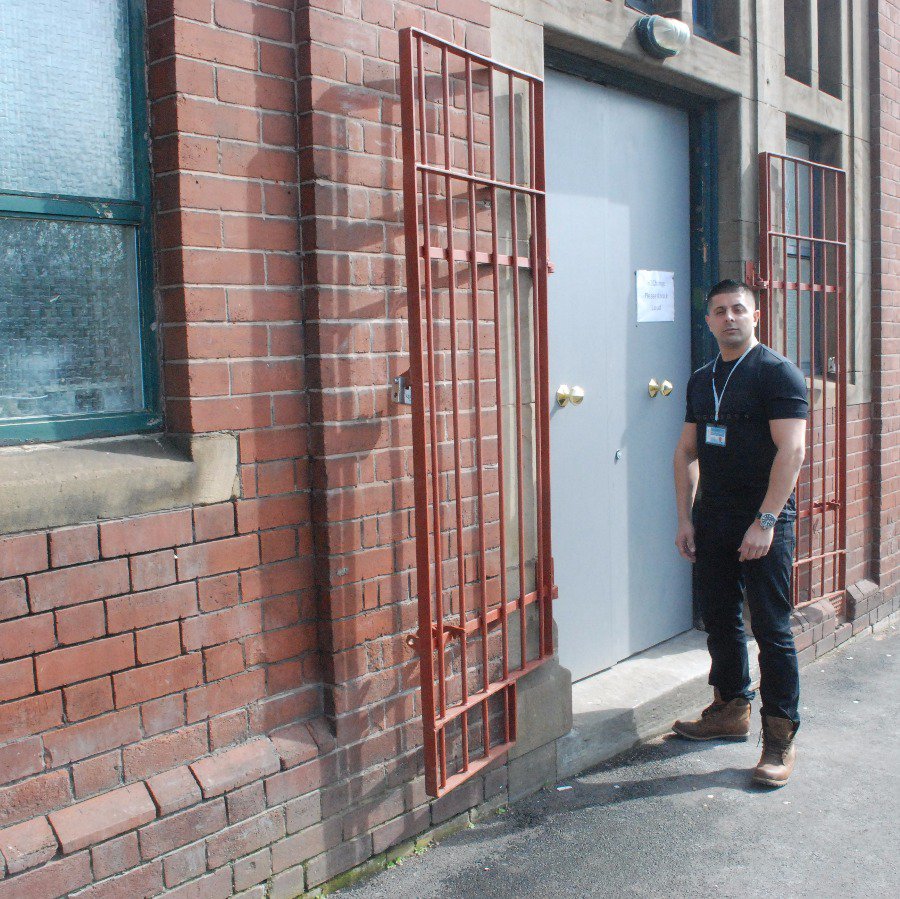"Prison was a blessing for me"

Hanif outside In2Change headquarters, in Sheffield
Hanif Mohammed is not your usual (ex) inmate, this is what he tells me as I sit in his office, asking him questions about his life and his time in prison. With every response I get from him it's far from what I was expecting, betraying my own preconceptions about ex-offenders that I wasn't even aware I had. He's charming, candid and personable but, above all, he's fiercely honest, “I'm telling you as it is, I'm not trying to dress anything up,” he tells me, on more than one occasion, when I ask him a question that I'd thought might be difficult to answer.
I'm grateful for his sincerity, because his approach to discussing the hardships of prison is everything this society needs, and more. The story that Hanif has to tell is one of redemption, a life of crime that ended with a life lost, but he doesn't see it that way, “to this day I don't think I've redeemed myself,” he tells me, despite having used his time in prison to better himself and help others. Hanif has no bitterness or self-pity about his circumstances, only the drive to continue bettering himself and those around him.
Growing up in the small town of Todmorden, West Yorkshire, in what he describes as a perfect household, Hanif wasn't exposed to familial dysfunction, drug or alcohol abuse, or crime. “I grew up in quite a normal home,” he says, “we often look for scapegoats to blame for our own inadequacies, in my situation it was absolutely myself,” he continues.
Unlike his classmates at school, Hanif didn't aspire to be a doctor or a professor, he says that his role models were people like Pablo Escobar and Al Capone, “I wanted notoriety, I wanted to be respected or feared,” he says. There was no gang culture where Hanif lived, yet that was the life Hanif chose for himself, “no one led me astray,” he tells me, “if anything, I probably lead other people astray,” he continues.
Expelled from school in year 10 for the possession of knives, Hanif says that his behaviour deteriorated from there, and the severity of the crimes he was involved in escalated. Prior to his imprisonment, Hanif had racked up 25 convictions for various crimes, but it all came to a head on January 9th 2008, when he and a friend were involved in a fatal stabbing.
The victim, Hanif says, was known in the local area as a bully and had been in prison himself, for assaulting one of Hanif's school friends with a knife. “I'd decided to teach him a lesson,” says Hanif, “it was more about scaring him, putting him in his place,” he continues. Tragically, the situation that unfolded had dire consequences, “unfortunately, things didn't go the way I wanted and as a result he was stabbed and it proved to be fatal,” Hanif says.
Hanif was subsequently charged with murder but, after nine months on remand, was convicted of manslaughter, “I orchestrated an assault with the intent of obviously hurting this individual, but not to the point of where it actually did go,” Hanif says, explaining why his original charge didn't stick.
“While in prison I embarked on a transformation,” he says. The catalyst of his atonement was deciding to study his faith of Islam, a faith that he had previously chosen not to engage with at all. It was upon studying the Quran in more depth that Hanif found a passage which spoke to him; the passage, Hanif says, reads: 'If you kill one human unjustly, it's as though you killed all of humanity.'
“I realised then that I needed to embark on a journey of redemption and transformation,” says Hanif. And that's what he did, becoming a good Samaritan in prison and helping his fellow inmates rise above issues such as suicide and self-harm.
“I became a beacon of light for these people and a beacon of strength,” Hanif says. He took on multiple other roles too, working various jobs in prison, this was when he met Brian Wreakes, who recognised Hanif's potential and helped him to realise it. Brian assured Hanif that, upon his release, he'd have an employment opportunity with him, “I thought this was bullshit,” Hanif says, “I thought 'here we go, another guy in a suit selling me this pipe dream,” he adds.
Despite his mistrust of authority figures, Hanif used this as a chance to gain a full education in prison, “I soon realised that I had something to offer, something to give back,” he says and so he jumped feet first into the employment opportunity Brian had given him.
By the time Hanif had reached a category D prison, he'd won The Hardman Trust Award – a charitable award that recognises the achievements of prisoners who have turned their lives around while in prison. He also began to volunteer at In2Change and Brian stayed true to his offer, fully employing Hanif upon his release, “within a year I became the manager, never looked back since,” Hanif says.
In his role at In2Change, Hanif has delivered countless presentations to people such as The Duchess of Gloucester and over 100 dignitaries, he's received an award by the Lord Lieutenant, and has worked with over 150,000 young people who were at risk of spending time in prison, he's also a trustee of The Hardman Trust, which enables him to go back into prison – this time as a worker, not an inmate, “I actually go back to the prisons I was released from and the same officers who were locking me behind my door are opening that door for me,” Hanif says proudly.
For Hanif, prison helped him to realise his potential and is something he's forever grateful for, “it turned out to be the best thing that's ever happened to me,” he says.
